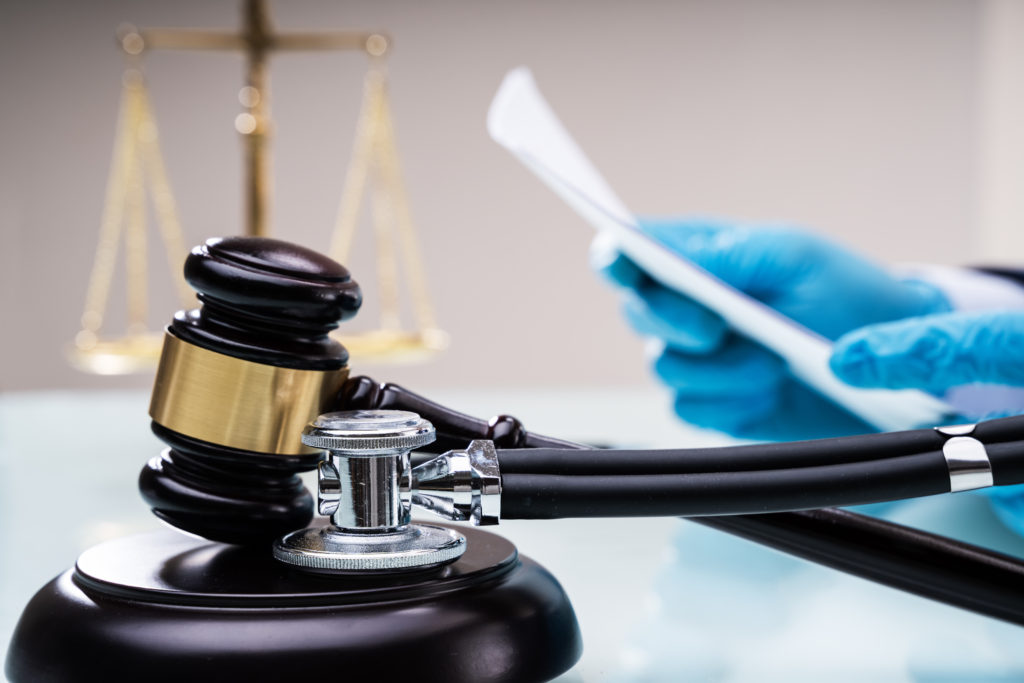Learn About Medical Negligence and Who Can Be Held Responsible
When you or a loved one has been the victim of medical negligence, it is important to understand how it can be proven in court. Receiving adequate compensation will require the plaintiff to demonstrate that not only has negligence occurred, but also that injuries were sustained as a result.
Defining Medical Negligence
Medical negligence (or medical malpractice) occurs when a healthcare professional, such as a doctor or nurse, causes harm to a patient. Medical negligence can lead to serious injury and even death.
Holding the defendant accountable financially is the only form of justice that will benefit the victim. Your case’s success is dependent upon demonstrating the defendant’s negligence and the plaintiff’s [your] damages. These damages can be financial as well as physical.
There are three elements of medical negligence that must be proven in court:
- The healthcare professional owed the patient a duty of care
- The healthcare professional breached their duty of care
- The patient was harmed as a result of the breach
Failure to demonstrate any of these three elements could result in the case being dismissed.
Term Definitions
Duty of Care
The legal obligation of healthcare professionals to provide a certain standard of care to their patients.
Breach of Duty
Any time a healthcare professional fails to meet the standard of care owed to their patients. Examples include making a mistake during treatment, failing to properly diagnose a condition, or providing inadequate care.
Harm
Physical, psychological or financial damages incurred as a result of medical negligence.
If you are unsure about your circumstance, seeking legal representation as soon as possible will help ensure you get the justice you deserve; many law offices offer a free consultation to evaluate your situation ahead of committing to a lawsuit.
How to prove medical negligence in court
As mentioned earlier, in order for medical negligence to be proven in court, the plaintiff must demonstrate that a duty of care has been breached. There are many ways in which a duty of care can be breached. For example:
Issues During Childbirth
Many issues can occur naturally during the delivery of a child. If a mother or child’s injury could have been prevented or reduced, the doctor may be found medically negligent.
Failure to Diagnose a Disease
Successful treatment of diseases requires early detection and action. A doctor failing to diagnose a disease when symptoms or indicators are present may substantially reduce a patient’s recovery potential. Depending on the circumstances, this may be considered negligent and the basis for a medical negligence lawsuit.
Medication Prescription Errors
If a physician prescribes the incorrect medication, or a pharmacist fills a prescription incorrectly, harm can occur.
Surgical and Post-Surgical Negligence
If a surgeon operates on the wrong area of the body or causes harm that was not a known risk of surgery, a patient may have a claim for medical negligence. If a surgical procedure requires special post-surgical care that is not provided and harm to the patient results, the patient or the patient’s family may have a claim for medical negligence. It is not enough to simply show that the health care provider made a mistake – in order for negligence to be proven, it must be shown that the mistake was so serious that it amounted to a breach of the duty of care owed to the patient.
If you believe you or a family member has been the victim of medical negligence, it is important to seek legal advice as soon as possible, as there are strict time limits in place for making a claim.
Who Can Be Held Accountable for Medical Negligence
There are several different entities that can be held accountable for medical negligence. A court may find that a medical professional, hospital, clinic, manufacturer or regulatory agency is at fault.
Medical Professionals.
This includes doctors, nurses, surgeons, therapists and any other individual with a duty of care to the affected patient.
Hospitals and Clinics
The second type of entity that can be held responsible includes the hospital or clinic where the negligent act(s) occurred.
Manufacturers
The manufacturer of a defective medical product may be held accountable for medical negligence if their product caused harm.
Medical negligence is an injustice that can leave a lasting impact on the victim and their loved ones. If you believe you’ve experienced a situation in which medical negligence occurred and you sustained serious damages, we may be able to help. At Avera & Smith, we believe you deserve just compensation for your injuries.
We understand that in order to get justice there are a lot of factors that influence the journey, but ultimately it will require proven success in a courtroom and a dedicated legal team to advocate on your behalf. The right medical malpractice attorney will stand with you and give you the best chance of winning your case.
If you or a loved one feel that you’ve been a victim of medical negligence, contact the attorneys at Avera & Smith for a free consultation and start your journey to getting the justice you deserve.
